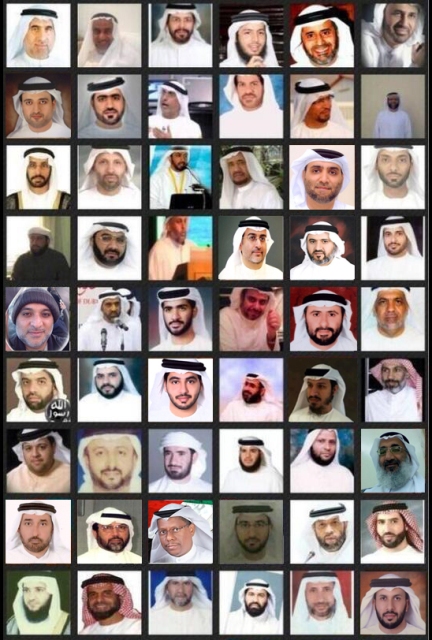On the 11th of December 2023, the NGO Emirates Detainees Advocacy Center (EDAC) reported that the United Arab Emirates (UAE) has initiated a new mass trial against more than 80 emirates. Arguably, the trial represents a continuation of the infamous UAE 94 case, where numerous citizens were arrested for political views. In the latest proceeding, new fabricated charges of terrorism have been initiated by the UAE judicial authorities against the convicted of the UAE 94 trial. This new case represents an alarming protraction of the strategy of silencing political dissidents by the UAE government. Especially despicable, considering that it overlaps with the COP28 event that the country is hosting.
Considering the latest proceeding of the 7th of December, it is appropriate to first refer to the facts on the ground of the UAE 94 trial. This case was the largest political trial in UAE history that resulted in the conviction of 69 citizens. The proceedings started in 2013, targeting activists, academics, and lawyers dissenting against the former government. More specifically, this group drafted a petition requesting the Emirati people the right to elect members of the Federal National Council democratically. In response, the authorities cracked down on the requests and started a campaign of suppression by creating a mass trial. The convicted received lengthy prison sentences, some as long as 15 years. However, the trial was conducted with severe flaws. The defendants were isolated for a period lasting one year or more and received tortures to obtain false confessions.
While trying to present itself as a progressive country, the UAE pursues strategies of political repression that are possible for the endeavours of government and the flaws of the criminal system. With regards to this, the UAE criminal code article 180 provides that whoever establishes an association that aims at overthrowing or take over the system of government, disrupting the application of law provisions or fighting fundamental principles on which the governing system of the state shall be imprisoned shall be sentenced to term imprisonment. Arguably, in the view of the UAE judiciary, the activists were enacting a strategy to fight the fundamental principles governing the state. However, this definition is excessively broad and hinders the freedom of expression of UAE citizens. In addition, regarding the latest charges of terrorism, the language of the criminal code is again debatable. No reference to the word terrorism exists in the UAE criminal code. Article 181 only refers to punishing whoever establishes the state organizations without a license from the government.
Furthermore, the UAE does not make politically motivated indictments public, making the latest case even more concerning. The new trial could potentially mean that the already convicted might face harsher sentences, including life sentences or the death penalty. The new hearing is scheduled for the 14th of December; however, families of the detainees have decided not to participate either because they were not informed or because they have lost hope. Symbolically, this new trial represents a concerning example of the repression of the UAE government. It overlaps with the ”most democratic” COP28 conference, according to the Arab state. In this instance, states were asking about the status of detainees, and the UAE decided to answer by fabricating new charges against them. This decision underlines the long-withstanding contradiction of collaborating with states able to repress civil society by misleading criminal systems under the control of the executive.





